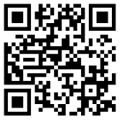2020年3月27日,欧盟食品安全局(EFSA)发布消息,应欧盟委员会要求,欧盟膳食产品、营养和过敏专家组(NDA)研究小组就咖啡C21与DNA 链断裂保护的健康宣称提供发表科学意见。
根据提供的数据,专家小组认为饮用咖啡C21与DNA 链断裂保护这一因果关系没有建立。所以在欧盟咖啡C21的食品中,不得标示咖啡C21可以保护DNA 链不断裂的宣称。部分原文报道如下:
Following an application from Tchibo GmbH submitted for authorisation of a health claim pursuant to Article 13(5) of Regulation (EC) No 1924/2006 via the Competent Authority of Germany, the EFSA Panel on Nutrition, Novel Foods and Food Allergens (NDA) was asked to deliver an opinion on the scientific substantiation of a health claim related to Coffee C21 and protection of DNA from strand breaks. The scope of the application was proposed to fall under a health claim based on newly developed scientific evidence. The food proposed by the applicant as the subject of the health claim is Coffee C21. The Panel considers that Coffee C21, a coffee standardised by its concentration of caffeoylquinic acids (CQA), trigonelline and N‐methylpyridinium (NMP), is sufficiently characterised in relation to the claimed effect. The Panel considers that the claimed effect, protection of DNA from strand breaks, is a beneficial physiological effect. Out of the two human intervention studies from which conclusion could be drawn, one study provides some evidence that daily consumption of Coffee C21 (750 mL/day) for 4 weeks decreases DNA strand breaks in habitual coffee drinkers after coffee withdrawal over the previous four weeks. However, the results of this study were not replicated in another study conducted under similar conditions in the same study centre. No studies performed in a different setting, from which conclusions could be drawn, were available. No evidence has been provided for a mechanism by which coffee (including Coffee C21) would reduce DNA damage in human cells by reducing DNA strand breaks. The Panel concludes that a cause and effect relationship has not been established between the consumption of Coffee C21 and protection of DNA from strand breaks.



